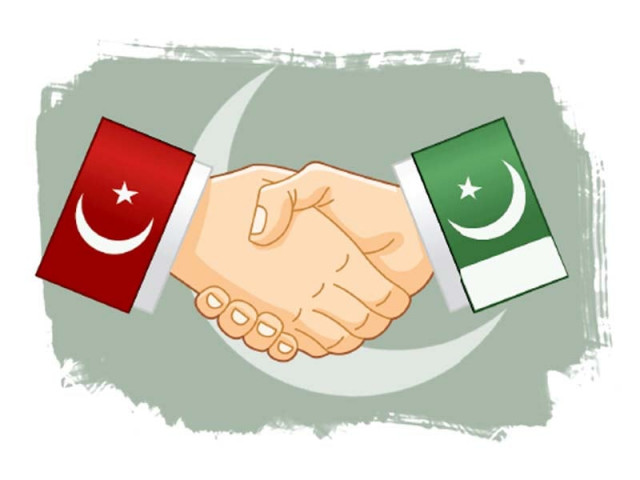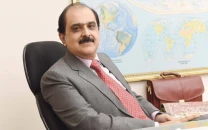Civil-military ties in Turkey: Two countries with similar pains
Turkey’s struggle to balance civil-military relations, parallels with Pakistan discussed.

Turkey’s struggle to balance civil-military relations, parallels with Pakistan discussed. ILLUSTRATION: JAMAL KHURSHID
Economic stability and improved service delivery are perhaps the most important of several factors that led to political stability and a subsequent balance in civil-military relations in Turkey. Pakistan could learn from the Turkish example, but it also needs to carefully observe current developments there.
Members of a delegation that visited Turkey in November 2013 shared these observations from their trip at a public forum on “Democratic Consolidation in Turkey” here on Thursday.

Both the visit and the forum were organised by the Pakistan Institute of Legislative Development and Transparency (PILDAT), a non-governmental organisation working on democracy-related issues.
The 16-member delegation included parliamentarians, politicians, retired army officers, former diplomats, civil society representatives and journalists.
During the visit, the delegation met with Turkish President Abdullah Gul, opposition leaders, members of the Turkish National Security Council, as well as academics and think-tanks.
Turkey has had a history of military interventions somewhat similar to the coups in Pakistan, but over the past decade or so, Turkey has been able to consolidate and strengthen its democracy.

PILDAT President Ahmed Bilal Mehboob said the visit was an attempt to find out how Turkey was able to achieve democratic stability, economic transformation and the restoration of balance in the civil-military relations.
Speakers said their discussion with the Turkish government and nongovernment representatives revealed that Turkey’s bid to join the European Union played an important part in gaining economic stability. The economic growth later led to better service delivery and a stable democratic government, they said.
National Assembly Standing Committee on Foreign Affairs Chairman Awais Leghari said that it was able to strengthen its financial discipline and take its people on board in making governance decisions.
Member National Assembly Shaista Pervez Malik said The Turkish government had made lives comfortable for its people before winning support for structural reforms, which Pakistan can learn from.

Pakistan Peoples Party Senator Farhatullah Babar said that while there are some similarities between the military coups in Turkey and Pakistan, there are also some differences.
“The Turkish military helped in Turkey’s independence movement, which didn’t happen in Pakistan. In Pakistan, the military has systematically and irretrievably established its influence over the political, economic and landed power centres in the country, which did not happen in Turkey.”
Babar said the Turkish government’s success in delivering services to its people appeared to have helped in winning the people’s confidence and putting army officers on trial for previous coups also acted as “deterrence” against future military interventions, in his opinion.
Senator Mushahid Hussain said that recently some members of the ruling Turkish party had resigned just ahead of the presidential elections in 2014 and the political parties had failed to reach a consensus on drafting a new constitution. These developments might be revealing a breach in the veneer of Turkey’s democratic stability.
Published in The Express Tribune, January 10th, 2014.



















COMMENTS
Comments are moderated and generally will be posted if they are on-topic and not abusive.
For more information, please see our Comments FAQ